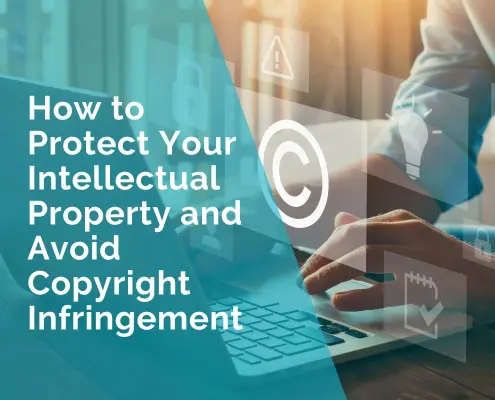How Small Businesses Can Benefit from Enterprise Level SEO Strategies
Small businesses often feel overshadowed by larger corporations dominating search engine results. It’s a common challenge—competing against big brands with extensive budgets, dedicated SEO teams, and sophisticated digital strategies. But what if there was a way to level the playing field? Imagine being able to access and effectively implement powerful SEO tactics usually reserved for large, enterprise-level companies.
By embracing and adapting enterprise-level SEO strategies, small businesses can significantly enhance their online presence, attract higher-quality traffic, and ultimately drive increased sales and revenue.
The key is recognizing that enterprise SEO isn’t exclusive to large corporations; instead, it’s a collection of advanced, scalable techniques designed to optimize websites that contain complex structures, extensive content, or multiple service areas. These strategies, when scaled appropriately, can empower small businesses to punch above their weight, competing confidently and successfully in their chosen markets.
Whether your goal is to strengthen local visibility or reach a broader audience, implementing enterprise-level SEO techniques tailored specifically for smaller enterprises can lead to impressive, measurable results. This article explores precisely how small businesses can borrow proven methods from the corporate giants, making them practical, affordable, and incredibly effective for sustained digital growth.
Understanding Enterprise SEO and Its Relevance for Small Businesses
Enterprise SEO isn’t solely for large corporations. At its core, Enterprise SEO services involve sophisticated tactics aimed at websites with extensive content, complex structures, or multiple service areas.
However, many strategies that enterprise-level companies use can be scaled down effectively for small businesses. Incorporating these techniques can drastically improve the search presence of small enterprises without requiring massive budgets or resources. Small businesses benefit by implementing efficient practices, boosting their competitiveness and customer reach.
Why Consider Enterprise SEO Strategies for Your Small Business?
Enterprise SEO techniques are robust, scalable, and systematic. They focus on deeper keyword targeting, improved user experience, technical optimizations, and a comprehensive content strategy. For small businesses, employing these methods can mean:
- Better ranking opportunities in competitive markets.
- Improved credibility through high-quality, informative content.
- Enhanced user experience leading to increased conversions.
- Long-term growth and sustainability.
- Improved efficiency and resource allocation.
Actionable Enterprise SEO Strategies Tailored for Small Businesses
Here’s how small businesses can practically apply enterprise-level SEO strategies:
1. Comprehensive Keyword Research
Incorporating comprehensive keyword research into your content strategy is crucial. According to an article on creating content that ranks, thoroughly researching and selecting relevant keywords ensures your content aligns closely with user intent, significantly boosting your chances of appearing prominently in search results.
Actionable Steps:
- Use advanced tools like Ahrefs, SEMrush, or Moz to identify keyword gaps your competitors haven’t explored.
- Target long-tail keywords matching specific customer queries, addressing their exact needs.
- Regularly revisit your keyword strategy to keep up with industry trends.
- Develop keyword clusters around customer journey stages to improve intent targeting.
- Utilize customer feedback and reviews to discover new keyword opportunities.
- Balance keyword competitiveness and relevance to optimize for effective targeting.
2. Focus on Structured Data and Rich Snippets
Structured data helps search engines understand your content clearly, increasing your chances of securing featured snippets and rich results.
Actionable Steps:
- Implement org markup for products, services, reviews, FAQs, and events.
- Test and validate structured data regularly to maintain accuracy.
- Monitor competitors’ use of structured data to identify additional opportunities.
- Update structured data consistently to reflect current business offerings and events.
- Optimize for voice search by incorporating structured data that answers conversational queries.
3. Prioritize Technical SEO
Technical SEO is the foundation of website optimization, ensuring your site functions effectively and meets Google’s ranking criteria.
Actionable Steps:
- Conduct regular technical audits using Google Search Console and specialized SEO tools.
- Ensure your site is mobile-friendly and loads quickly across all devices.
- Secure your website using HTTPS to establish trust.
- Optimize site structure, improve navigation, eliminate broken links, and ensure redirects function correctly.
- Regularly review site crawlability and indexing to ensure all key pages are discoverable.
- Optimize metadata, alt-text, and URL structures consistently.
4. Develop Authoritative Content
High-quality content positions your business as an industry authority, increasing trust and encouraging backlinks.
Actionable Steps:
- Create comprehensive guides, detailed how-to articles, and expert analyses.
- Regularly update high-performing content to maintain relevance.
- Encourage user-generated content such as reviews and testimonials.
- Include multimedia elements like videos, infographics, podcasts, and webinars.
- Collaborate with industry influencers to enhance authenticity and exposure.
5. Leverage Topic Clusters for Enhanced SEO
Topic clusters help search engines understand your site’s authority and content relevance clearly.
Actionable Steps:
- Identify core topics central to your business.
- Develop pillar pages and create subtopics linking back to central pillars.
- Regularly monitor cluster performance, adjusting content strategies accordingly.
- Utilize strategic internal linking to facilitate easy navigation.
- Expand clusters based on audience interests and keyword performance insights.
6. Streamlined Content Strategy
Consistent, strategic content publishing helps build authority and engagement.
Actionable Steps:
- Develop a detailed content calendar based on thorough keyword research.
- Maintain regular publishing schedules for consistent audience engagement.
- Align content strategy with business objectives and customer needs.
- Use analytics to identify successful content types and replicate success strategically.
- Collaborate across departments to ensure consistency and clarity in messaging and branding.
- Measure content ROI to justify efforts and inform future content investments.
7. Strategic Link-Building Efforts
High-quality backlinks significantly boost your site’s authority and visibility. Link-building remains one of the most impactful ranking factors because it signals trust and authority to search engines.
Actionable Steps:
- Identify guest blogging and community participation opportunities for organic link-building.
- Analyze competitor backlink profiles regularly for strategic insights.
- Actively monitor your backlink profile to maintain quality and promptly address issues.
- Create and promote valuable content assets like original research, case studies, and industry reports.
- Develop relationships with industry influencers, bloggers, and publishers for continuous collaboration.
8. Detailed Performance Analysis and Adjustments
Regular and detailed performance analysis is essential for sustainable SEO success. Enterprise-level businesses consistently leverage comprehensive data analysis to inform strategic adjustments, keeping them ahead in highly competitive markets.
Actionable Steps:
- Regularly perform comprehensive SEO audits to identify and quickly rectify issues.
- Use detailed analytics to track user behavior, adjusting content and site structure accordingly.
- Continuously assess traffic sources and optimize marketing channels effectively.
- Define clear KPIs, regularly reviewing them for ongoing performance monitoring.
- Implement A/B testing for site elements like layout, CTAs, and headlines, refining user experience.
- Monitor competitor strategies vigilantly, quickly adapting tactics to maintain competitive advantages.
- Leverage predictive analytics to anticipate industry trends, proactively adjusting strategies.
- Document and communicate findings consistently across teams for cohesive action.
- Invest in ongoing SEO training for your team to ensure best practices are continuously applied.
- Schedule regular strategic meetings to discuss insights, challenges, and improvements, ensuring alignment across departments.
Final Thoughts: Implementing Enterprise SEO in Your Small Business
Small businesses don’t need massive budgets to take advantage of enterprise SEO services effectively. By selectively adopting advanced SEO strategies, your business can significantly improve online visibility and engagement. Remember, SEO is a long-term commitment, but with disciplined application, small businesses can compete confidently alongside industry giants.
Whether your goal is to attract local clientele or extend your digital presence globally, employing these sophisticated yet manageable strategies will position your small business for sustained growth in a digital-first world.
Frequently Asked Questions (FAQs):
1. How long does it take for enterprise-level SEO strategies to show results for small businesses?
Typically, SEO results begin to appear within 3-6 months. However, for enterprise-level strategies, especially involving content authority and link-building, the full benefits often become evident after 6-12 months, depending on industry competitiveness.
2. Can enterprise SEO strategies work effectively with limited budgets?
Yes, many enterprise-level tactics—like structured data markup, topic clusters, and strategic content creation—can be implemented with modest budgets. The key is prioritizing activities with high ROI potential.
3. Are enterprise-level SEO strategies applicable for local small businesses targeting specific geographic areas?
Absolutely. Techniques such as structured data for local business listings, localized keyword research, and authoritative content tailored to your local audience are highly beneficial for local SEO.
4. How can small businesses measure the success of adopting enterprise-level SEO strategies?
Monitor KPIs like organic traffic growth, keyword rankings, bounce rates, conversion rates, and overall online visibility. Tools such as Google Analytics, Google Search Console, Ahrefs, and SEMrush are essential for tracking progress.
5. Do enterprise-level SEO techniques require hiring an SEO specialist?
While an in-house or contracted SEO expert can expedite and optimize results, small business teams can implement many strategies independently using accessible tools and resources. However, consulting with experts occasionally can ensure optimal effectiveness.
6. How do enterprise-level SEO strategies differ from traditional small business SEO tactics?
Enterprise SEO is generally more comprehensive, focusing heavily on advanced technical optimizations, detailed performance analysis, structured content approaches, and robust link-building strategies, compared to standard small-business tactics that may primarily emphasize basic keyword optimization and simpler content marketing.
7. Are enterprise SEO strategies sustainable for small businesses in the long run?
Yes, enterprise-level strategies, once properly set up, provide sustainable benefits. They help small businesses establish long-term credibility, consistent traffic flow, and ongoing adaptability to SEO changes.
8. How frequently should small businesses update their SEO strategies to remain competitive?
SEO strategies should be revisited at least quarterly, with detailed audits annually. However, continuous monitoring and minor adjustments based on data insights should be performed monthly to maintain competitiveness.
9. Which enterprise SEO practices offer the quickest wins for small businesses?
Optimizing technical SEO, implementing structured data markup, and developing targeted, high-quality content around strategic keywords typically offer the quickest visible improvements.
10. Should small businesses outsource enterprise-level SEO or keep it in-house?
This depends on available expertise, time, and budget. Outsourcing provides specialized experience without the overhead of in-house management. However, small businesses with dedicated resources and knowledgeable teams might benefit from managing SEO internally to maintain closer control.
***************
Enrika Maziliauskaitė










